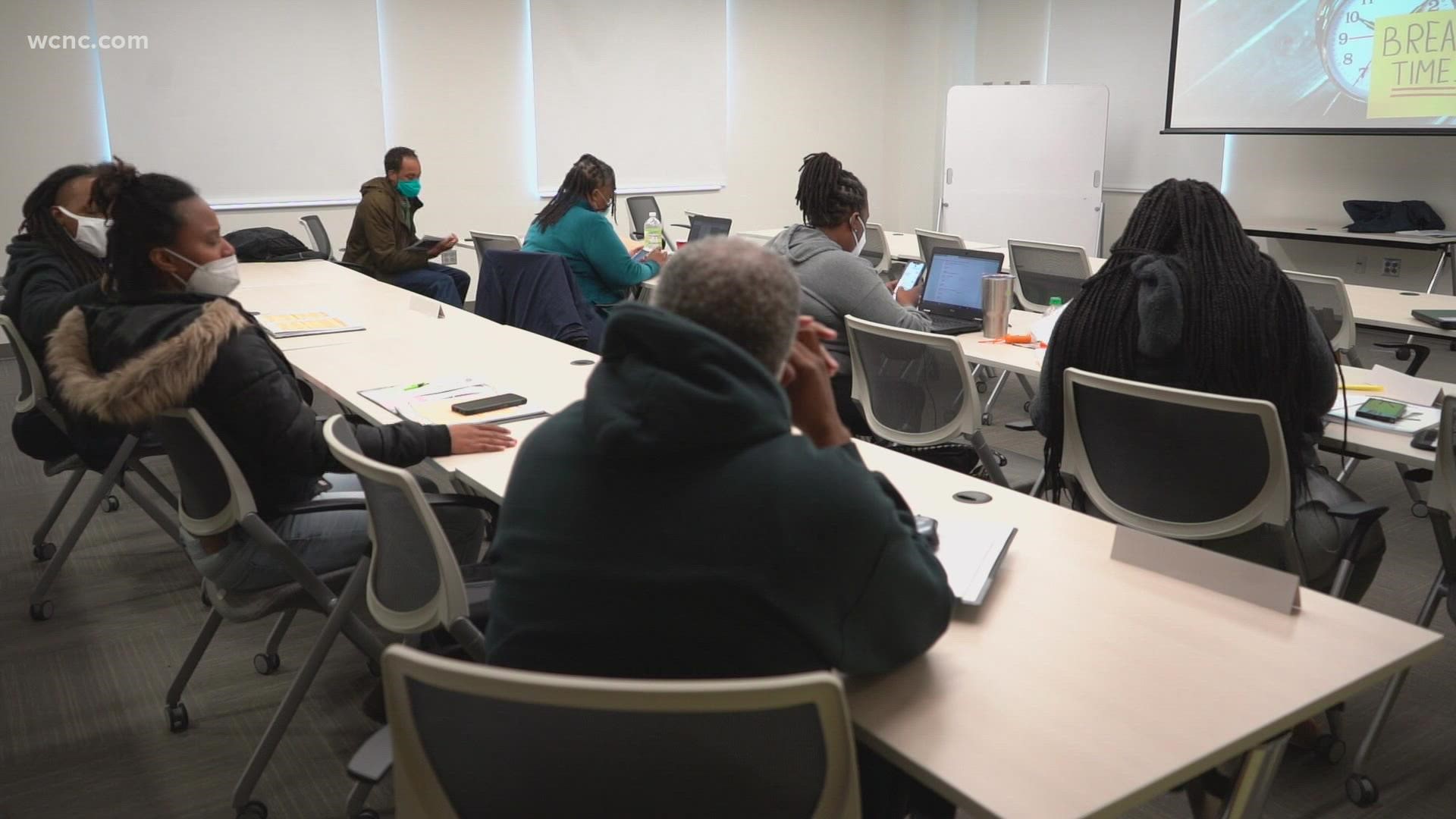CHARLOTTE, N.C. — The ReEntry Entrepreneurship Program (REEP) is helping formerly incarcerated inmates returning to Mecklenburg County escape stigma and find work under circumstances that would normally make gainful employment for them impossible.
"It's about good opportunities and a viable option," Travis William, the director of the Charlotte-based program, said. "And unfortunately, when you have a conviction on your record, your options dissipate."
REEP founder and executive director Henry Rock created "City StartUp Labs" in 2014. Rock says the program originally focused primarily on young Black men but launched a new initiative four years later to become a coed program specifically targeting ex-cons reentering the workforce.
The curriculum takes participants through a robust and intensive battery of training that develops entrepreneurial know-how and mindset abilities that will help them start their own successful businesses.
ALSO ON WCNC CHARLOTTE: 'They’re giving me a chance' | Tiny homes created for homeless veterans in Statesville
"We start off with what we call cultivation, where we kind of look at ourselves, who we are, why we are where we are," Rock told WCNC Charlotte.
The program is housed inside the UNC-Charlotte portal and is made possible by a University Business Partnership with the same goal in mind: take as many of the estimated more than 100 formerly incarcerated people returning to Mecklenburg County monthly and turn them into successful business owners.
Since its inception, more than 100 people have undergone the highly selective year-long training, which consists of 10 weeks of classes and includes hands-on learning. Last year REEP received a $37,000 grant from Michael Jordan and the Jordan Brand's inaugural Black Community Commitment Grant Program.
"When I see folks stretching beyond themselves, I mean, that's really, really gratifying," Rock said.
Nate Moore is one of the program's proteges. He joined REEP after spending time in a military prison, which ruined his 22-year career in the United States Navy. Moore says insight learned from the program has helped him run several businesses that range from a virtual video streaming service to a property rehabbing operation and a food service consulting firm.
"We are individuals who can really be an asset to society,” Moore said.
Gensie Baker -- another REEP student -- ran into trouble with the law decades ago because of what she calls a "dumb mistake" that never landed her in jail but got her a bank fraud felony that will stay on her record for the rest of her life.
"In my 20s some friends came to me and said, ‘Hey... Can we deposit a check into your account?’ ‘I said, Sure,’” Baker added, "I applied to Starbucks, I applied to every place under the sun. And nobody would hire me for a job."
Between REEP, previous coursework and her job experience Baker is now able to operate a marketing firm she calls, "Re-Entry By Design" with hopes of shedding the stereotypes over herself and others with similar backgrounds.
"I'm also in the process of launching a social media marketing company that is really going to focus on educating people and inspiring them to act for change in terms of criminal justice reform, and reentry reform to provide more opportunities for people," Baker explained.
Contact Fred Shropshire at fred@wcnc.com and follow him on Facebook, Twitter and Instagram.

